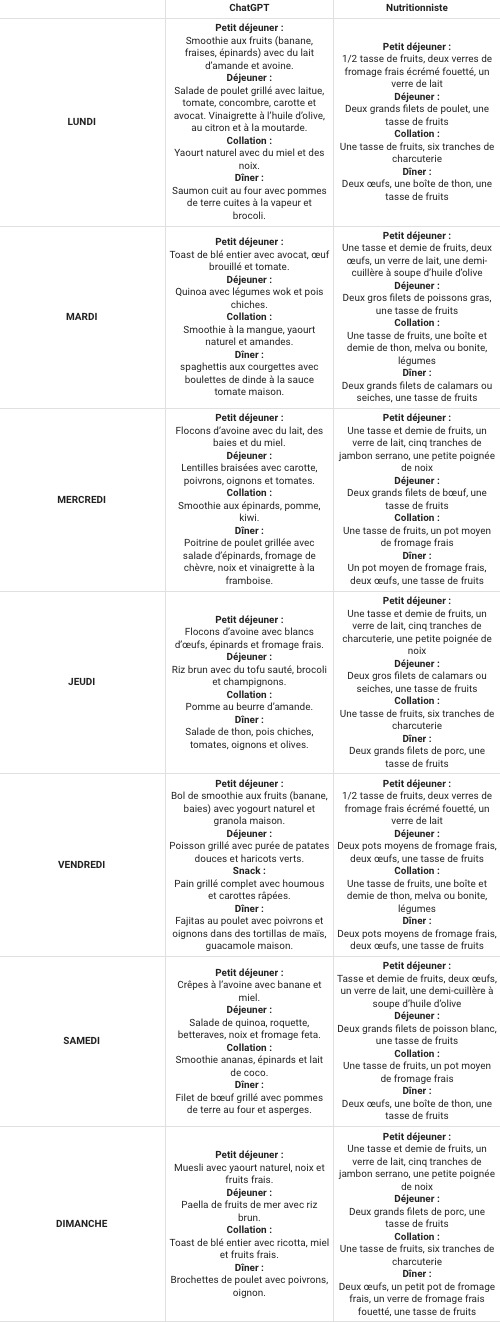Published on
Updated
Reading 2 mins.
When it comes to nutritional advice, ChatGPT seems pretty good. This is at least what emerges from a test conducted by the French site jeuxvideo.com. But can he replace a nutritionist? Doctissimo takes stock.
ChatGPT feels like it can do it all. The latest evidence? The tool would seem to create nutritional menus worthy of a nutritionist.
ChatGPT proves to be better than the experts
As part of a nutrition test, the French website jeuxvideo.com asked ChatGPT to develop a tailor-made menu for a 32-year-old athletic man.
Here are his needs:
“I am a 32 year old male, 1.90m tall, weigh 89kg, have an extremely sedentary job but go to the gym for an hour of strength training five times a week. I will run between 5 and 15 kilometers two to three times a week. Prepare me an adapted weekly menu based on fresh food, without industrial or ultra-processed products, from Monday to Sunday with breakfast, lunch, snack and dinner.”
Then the same request was made to a professional nutritionist.
Here are the two resulting menus:

Two nutritionists then gave their opinion, and both preferred menu A, unaware that it was ChatGPT.
“Menu B is better in fiber and more balanced in protein. The A has a greater variety of foods. The B is limited to mentioning the foods, without indicating the processing techniques. (…) If I had to keep one, it would be the A“, says one of the nutrition experts interviewed.
“Giving a diet is not enough”
If the results are surprising, this does not mean that an artificial intelligence can replace a professional, as Vanessa Bedjaï-Haddad, nutritionist in Paris, reminds us.
“Dn the field of nutrition, to design a food program, whether to eat healthy or to lose weight, all you need is a certain amount of data and the right calculations. What an AI can do and what is the case here“, details the expert. “On the other hand, what makes all the complexity and the interest of our profession is the fact of adapting to what the patient is beyond his physiological characteristics. His life story, his background, his way of life, his tastes, his constraints, his needs, his emotions, his fears… Giving a diet is not enough. Our role is to help our patients to know themselves, to understand themselves in order to positively modify their behavior“.
Moreover, this type of program, without explanations, “can result in shortcuts of good and bad foods”, says the nutritionist.
“However, we want our patients to be more attentive to their desires, their needs. We invite them not to put pressure on themselves, not to be constantly in control and, on the contrary, to listen to themselves in order to find the key to a serene diet. A job that the algorithms do not (yet) know how to do…”, she concludes.
